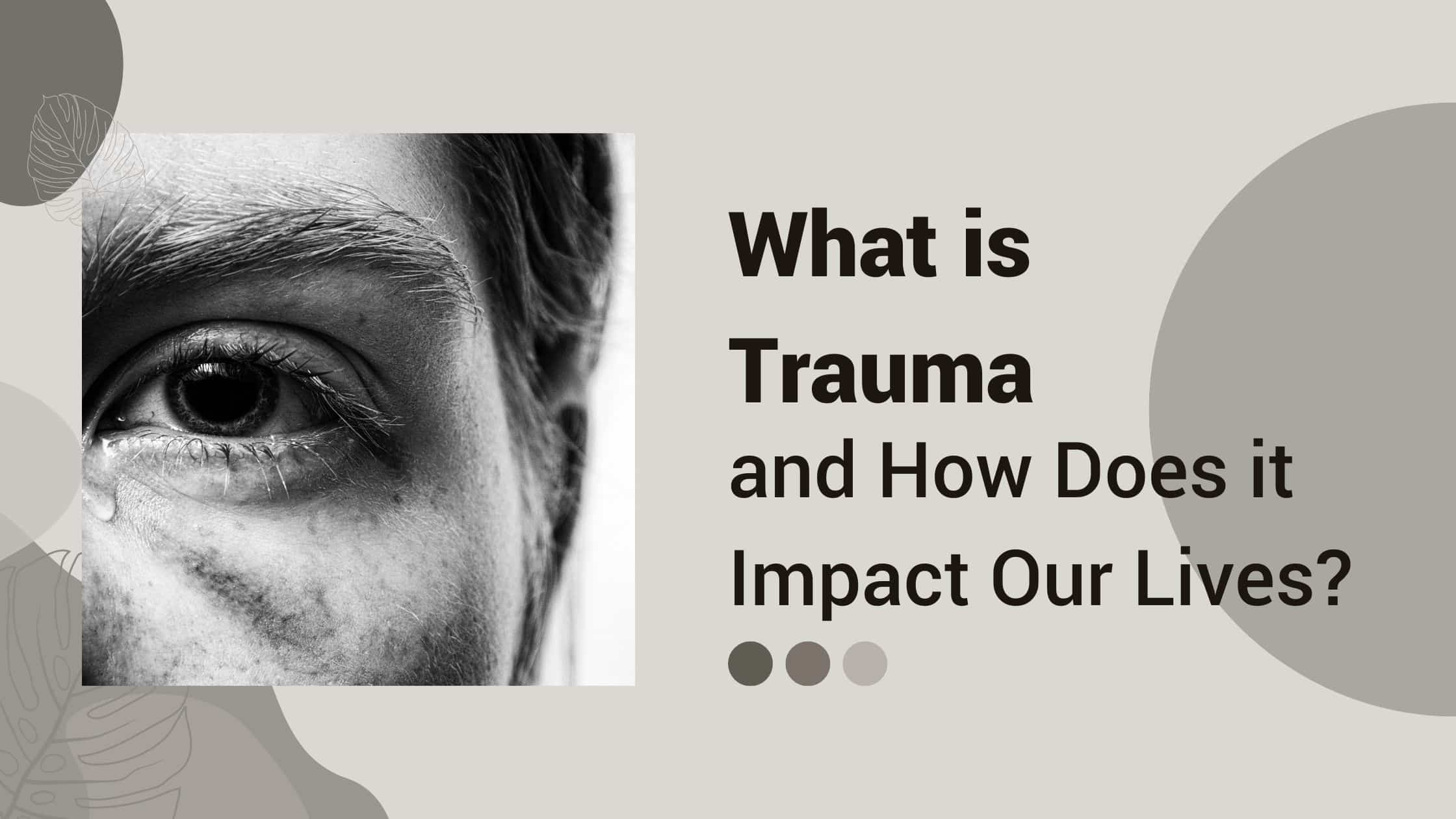
What is Trauma, and How Does it Impact Our Lives?
Trauma is probably one of our most misunderstood mental health problems. When we think of the term, it probably calls to mind visions of terrifying places like combat zones or the aftermath of a hurricane. However, trauma is a nuanced concept that can impact our lives in many ways, including some that you may not expect. We’re going to demystify trauma in this post.
What is Trauma?
Trauma is anything that is too much, too soon, or too quick for your body to handle. It’s not a unique experience – you’ve probably felt trauma at some point in your life. It generally manifests with negative emotions, like fear or panic, and sensations of helplessness.
Those who experience trauma often hide their feelings since they’re so difficult to deal with. While some people learn to manage their trauma, others need some extra help. And still, others may not be able to cope at all and spiral into Post Traumatic Stress Disorder (PTSD).
Trauma can have a huge impact on our lives. Perhaps the biggest effect is on our mental health. It can often cause anxiety or stress but can be so deeply submerged that those suffering from it don’t recognize trauma as a culprit. This, in turn, can lead to getting “re-triggered,” a situation where the fight-flight-freeze instinct takes over and can cause panic attacks.
Where Does Trauma Come From?
Trauma can come from one or more events in someone’s life. Often, it’s some kind of personal disaster like a car accident. However, it could also be a large-scale disaster, like a hurricane or earthquake.
What is an Adverse Childhood Experience (ACE)?
One important piece of research in the world of trauma was the Adverse Childhood Experience (ACE) study. It looked at how childhood trauma like neglect, abuse, divorce, and parental problems affected overall health during adulthood.
The study found some pretty shocking results. For one, it recorded more than just mental effects. Those who experienced an ACE had an increased risk of heart or liver disease. They also may partake in more risky behaviors, like smoking or substance use. Researchers believe these problems result in a fundamental change in human coping mechanisms from an ACE.
If you choose to work with Amanda on the integration of medicine, you will get a questionnaire containing questions from the ACE study.
Trauma and COVID-19
No one will argue that the COVID-19 pandemic was one of the biggest events of our lifetimes. And when an event that’s so ubiquitous and negative happens to an entire population, it can cause trauma on a massive scale.
Dr. JoAnn Difede, who has studied the effects of PTSD for two decades, says that the COVID-19 pandemic presented the perfect storm of variables to traumatize an entire society. For many people, the death of a loved one from COVID-19 triggered massive trauma. Even those who didn’t experience loss like this were still traumatized. Moreover, Dr. Difede says that the lack of social connection and support during COVID lockdowns exacerbated the problem.
Different Types of Trauma
Trauma can come from anywhere. Often, it stems from the actions of people in someone’s life, like friends, family, or strangers. But it can just as commonly result from environmental or social factors like natural disasters.
One critical fact to understand regarding trauma is that this phenomenon can present itself in different ways. Researchers have divided the concept of trauma into these four categories.
Single Incident Trauma
Also known as “Big ‘T’ Trauma,” this is the most widely recognized form of trauma. It occurs when someone experiences a particularly difficult single event, like a car accident or sexual assault. It’s common among soldiers and other individuals who work in dangerous conditions and can sometimes lead to PTSD.
Complex Trauma
Sometimes called “Little “t” Trauma,” complex trauma results from repeated small traumatic events. Unlike Single Incident Trauma, no big moment traumatizes an individual. Instead, it’s the result of seemingly insignificant events that add up over time. Complex trauma can stem from poor parenting or other adverse childhood experiences, although it can also happen during adulthood. It’s difficult to identify and can seriously affect a person’s day-to-day functioning.
Intergenerational Trauma
Intergenerational trauma is likely one of the least-understood forms of trauma. It moves down through generations of a family, from the ones who experienced it to their children (and even further). It can lead to increased rates of addiction and poor mental health outcomes. It can often be found in indigenous populations that experienced colonial genocides, like Native Americans or Aboriginal Australians.
Vicarious Trauma
This complex form of trauma happens when someone experiences someone else’s traumatic event. Typically, it affects those who work with traumatized individuals, like first responders or therapists. People close to someone who has experienced a traumatic event, like a parent or partner, may also experience vicarious trauma.
Work Through Your Own Trauma with Some Help from a Coach
Although it can be tempting to bottle your traumas up, that’s never a solution. Instead, it would help if you worked through your traumas to integrate them holistically into yourself. That’s easier said than done, though.
Working through your trauma can feel impossible. It’s a huge task; sometimes, the hardest part is getting started. But it’s not something you have to do by yourself. As a life coach, I’ve helped other clients work through their trauma – and I can help you, too. Ready to take action and work past your trauma? Sign up for a free consultation here.